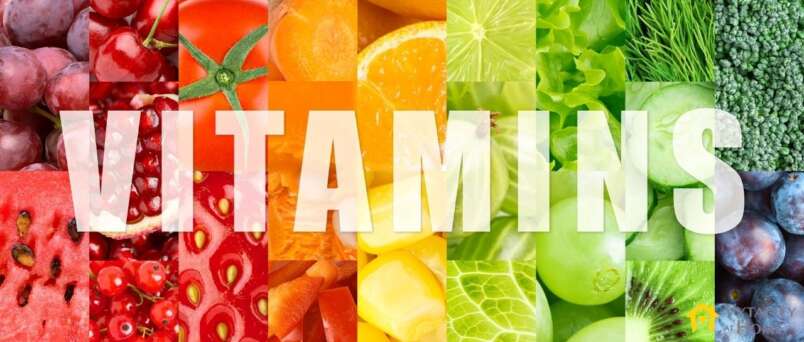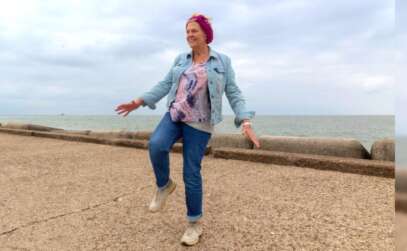To supplement or not? Seniors and vitamins
Whatever your age, if you are fit and eat a healthy balanced diet, you shouldn’t actually need any additional vitamin supplements. Generally, our bodies are very good at regulating our vitamin intake, and if you do take in more than required, the body will simply flush them through.
At best, taking unnecessary vitamins can be expensive, but at worst, it can be potentially harmful if you are already taking prescription medications. If you think you are deficient in any vitamin, always consult your doctor and get tested before taking supplements.
Vitamin D, sunlight and senior health
Our bodies create most of the vitamin D we require as a reaction to direct sunlight on our skin.
Vitamin D helps your body absorb calcium and phosphate from our food. It supports bone and teeth health, cell growth and helps keep our muscles stronger. There is also evidence that vitamin D helps our brain cells communicate efficiently and recognise chemical signals.
Senior skin is thinner than when we are younger, so is less efficient at producing vitamin D. Physicians recommend therefore that seniors try and get outside into direct sunlight for 10-15 minutes a day whenever possible. Even five minutes can make a big difference!
In seniors, the kidneys become less efficient at converting vitamin D. By keeping fit and active, and spending plenty of time outside, seniors can help boost their fitness and their vitamin D levels too.
Only a few foods contain vitamin D, such as oily fish, yoghurt, eggs and some fortified breakfast cereals. If your body cannot provide sufficient from food and sunlight alone, your physician may prescribe a vitamin D supplement.
Always consult your physician before taking any vitamin D supplement, as excess vitamin D can cause issues, as the Health Canada website explains:
“Too much vitamin D can cause too much calcium to be deposited in the body, which can lead to calcification of the kidney and other soft tissues including the heart, lungs and blood vessels.”
B vitamins and vitamin B12
The B groups of vitamins support a whole range of functions in the body, including keeping our nervous system, eyes, and skin healthy. Vitamin B6 is required for the production of red blood cells. Again, if you’re eating a healthy, balanced diet, you should not require any vitamin B supplements.
However, as we age, our bodies find it more difficult to absorb one specific B vitamin, namely B12. This can often be boosted by eating B12 rich foods such as chicken, meat, cheese and eggs, cod and salmon, and yeast extract.
If you are concerned about vitamin B12 deficiency, consult your physician. As the Dietitians of Canada website explains:
“Up to 30% of adults over age 50 may have trouble absorbing vitamin B12, and may need supplements or B12 injections. Your doctor can perform a simple blood test to check your vitamin B12 status.”
B12 and vegans
As the US health website explains:
“Strict vegetarians and vegans are at greater risk of developing vitamin B12 deficiency because natural food sources of vitamin B12 are limited to animal foods.”
If you are on a vegan or vegetarian diet, and are aged over 65, consult your doctor to check to see if you might require an additional source of vitamin B12.
Other vitamins and minerals
According to the Alberta Health Services, other vitamin and minerals your physician may monitor are vitamin A, calcium, iron and zinc.
Calcium helps keep your bones healthy. Most people know that milk and milk-based foods are rich in calcium, but you can also top up your levels with:
• Canned fish with soft bones including salmon and sardines
• Dark-green leafy vegetables such as broccoli, kale and spinach
• Foods with calcium added, such as breakfast cereals and and fortified plant-based beverages.
Iron is present in many foods including red meat, pluses and beans, wholegrain, nuts and seeds, leafy green veg, dried fruit and eggs. Again, you should be able to gain sufficient iron from a healthy diet without the need for supplements. However, those aged 65+ are more at risk of iron deficiency and iron deficiency anemia. Iron deficiency in seniors can be an indicator of an underlying condition, so always seek medical advice before taking any iron supplements.
A healthy diet made simple
For more on a healthy diet, including recipes and tips for healthy eating whatever your age, see “Canada’s food guide”.
Home care help with a healthy diet
At Vytality at Home, we can help seniors and the disabled with healthy meal planning. We can also assist with the practical side of food shopping, including grocery deliveries and putting food away once delivered.
To discuss your home care needs:




